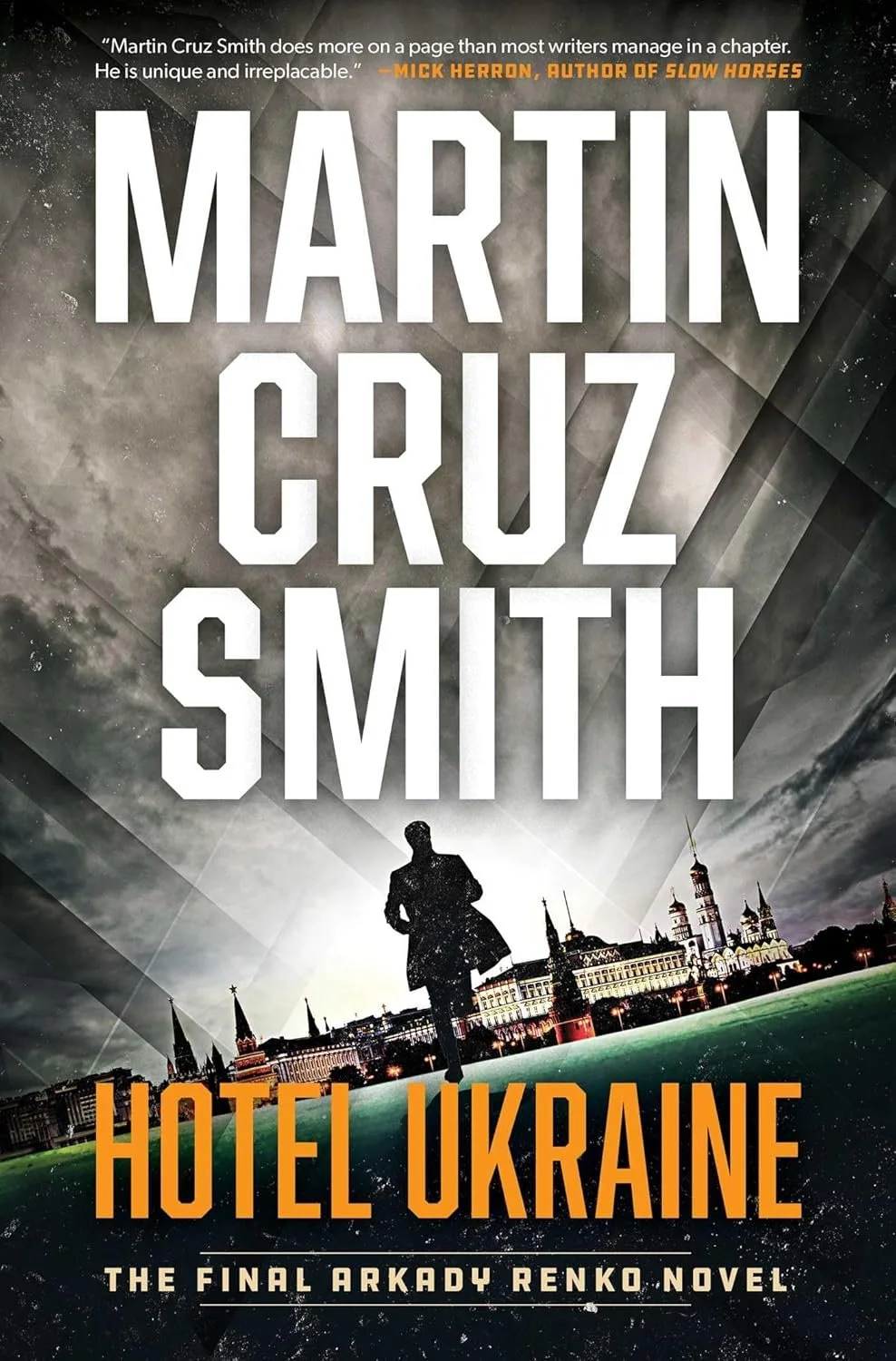Hotel Ukraine by Martin Cruz Smith
/Hotel Ukraine
By Martin Cruz Smith
Simon & Schuster
Alexei Kazasky, a Russian deputy minister of defense, is discovered shredded beyond recognition in a posh Moscow hotel. “His body looked as if it had been hurled around the room in streaks and sprays, in splashes and smears.” The number 2 is swiped in blood on the wall. Or maybe it's the letter Z? CCTV shows a lone figure enter through the only entrance and leave soon after, but those at the scene do not believe a single man could create such brutality.
These days, Prosecutor General Zurin pushes three types of cases to Senior Inspector Arkady Renko. The very minor, those that send Arkady to far-flung parts of the Russian Federation, or the politically sensitive designed to humiliate and neutralize the irreverent detective. Hotel Ukraine is a story of the third. Finding a murderer is hard enough, but, in a region where powerful creatures pounce at the slightest scent of weakness, the guilty often outnumber the innocent.
Our novel’s backdrop is perilous as Russia’s invasion of Ukraine wears on. So do the effects of Renko’s Parkinson’s Disease. Zhenya, Arkady’s adoptive chess prodigy/computer whiz son, keeps the story ferociously high-tech, while Tatiana, Arkady’s ex-lover and pitbull of a New York Times journalist, keeps the corrupt looking over their shoulder hoping to avoid publicity. An encrypted flash drive is connected to a judo club, a para-military group, a psychopath in a baseball cap, and a threat to Putin’s regime. A violent plot steers us from Moscow to Ukraine and back again. Expectations are constantly subverted in brilliant ways, but readers beware - this is the last book in the series, and the only thing more threatening than Arkady Renko searching for the truth is being close to him while he digs.
This author infuses deliciously dark wit into grim material and separates Renko from so many broken down, morose detectives in literature. Arkady’s fingers involuntarily slide in a Parkisonian pill rolling motion making others think he is requesting a bribe. Zhenya is nearly arrested for ‘use of illegal language,’ when he is overhead using the term ‘war’ rather than ‘enhanced military operation’, in reference to Russian’s invasion of Ukraine. We are treated to a thrilling chase sequence which never sees Arkady accelerate above a gentle walk. Martin Cruz Smith mines humor from the unlikeliest sources and uses it effectively to counterbalance the pain of occupation and oppression.
Arkady Renko first appears in the snow-crusted, vodka-soaked 1981 crime fiction novel, Gorky Park. It was a major literary success for a skilled writer who spent a decade gaining little traction from fans of fiction. Gorky Park was applauded for its hyper-realistic portrayal of the Soviet Union during the Cold War and pulled the curtain back on the ultimate unknown boogeyman. American members of Generation X knew its Superpower opponent primarily through snippets reported on the evening news, or through the filter of parents and teachers. Few Americans, young or older, possessed a salient idea of Russia as a living place or could fathom Russian people as a vibrant population with rich culture. In the mid-1990’s, a copy of Gorky Park found its way into this reader’s hands and a part of the world that abstractly floated in my mind for years crystallized in full color. Within its genre-defying pages, the landscape and people of Moscow shined as vividly as my own hometown. Polar Star (1989) and Red Square (1992) followed, and millions of readers were hooked. In a time before all known information existed in our pockets, many learned about the world through made up stories and Arkady Renko led some of the finest.
Few English language storytellers grasped this region as acutely as Martin Cruz Smith. He described wrote mysteries with incredibly clarity and gave many readers the gift of experiencing remote locales they’ll never visit. Smith suffers from Parkinson’s himself and after forty-five years of entertaining and teaching us through his novels, this is likely where the brilliant author and classic character exit the literary stage.
This part of the world is as relevant in 2025 as it was in 1980 and even being the last book in a long-running series, Hotel Ukraine serves as a suitable entry point for new readers. They may not jump, pace, cry and cheer with the passion of long-time fans, but this is a magnificent work of mystery writing for us all.
Ryan Davison, Ph.D., is a writer living in Lisbon.
